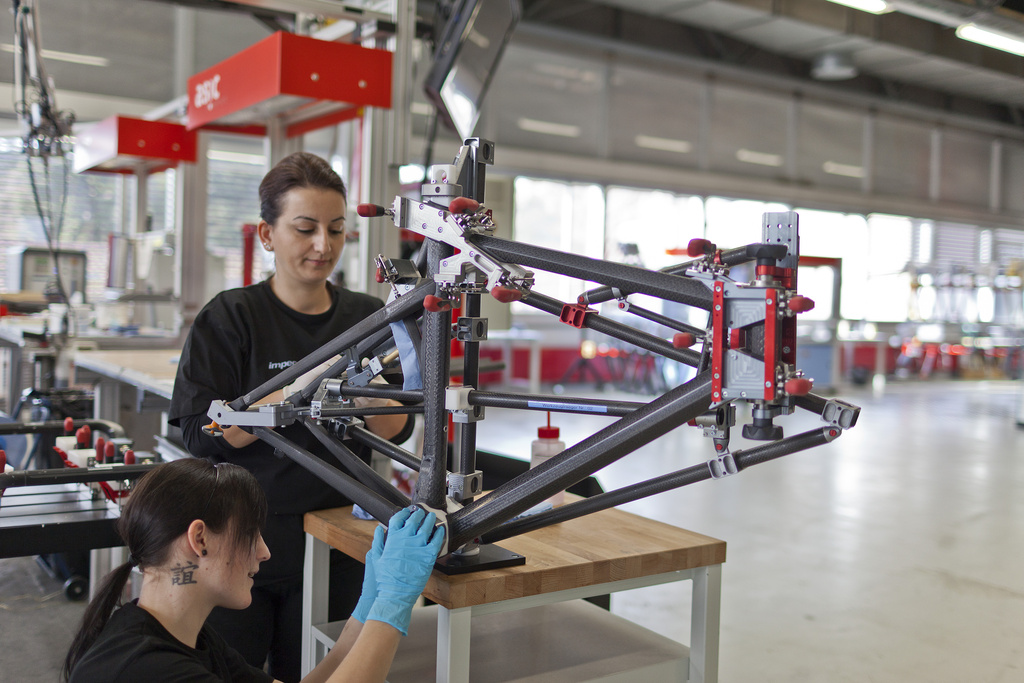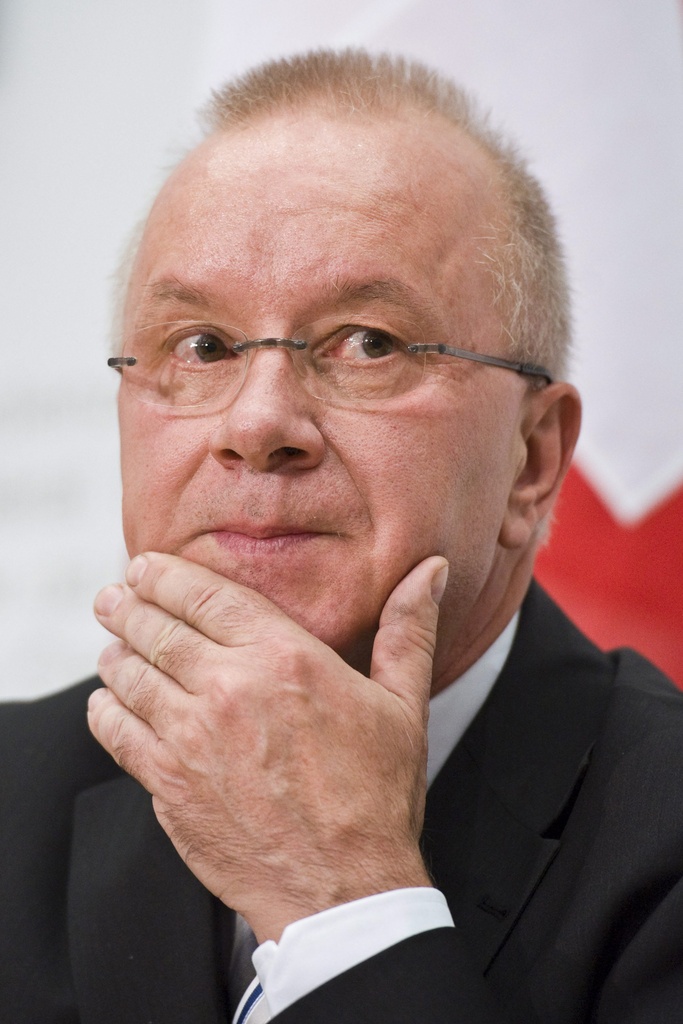Relying on innovation to boost economy

Switzerland is a world leader when it comes to innovation, thanks to a model education system, creativity and a flexible labour market. But this added value is not always to be found in the most obvious places.
It’s without a doubt one of the most widely agreed upon policy principles among decision makers and economists in Switzerland today: to remain competitive at the international level, Swiss companies have to focus on innovation.
The innovation mantra is even more popular in the context of a particularly challenging global economic environment.
The eurozone’s public debt crisis has emphasised the Swiss franc’s role as a safe-haven, upping prices on already expensive Swiss products. Meanwhile, the European Union wants to slow the flow of multinationals setting up shop in Switzerland to benefit from favourable tax deals.
“Tomorrow’s jobs”
According to a report published by the Swiss Business Federation in May, “innovation is the only way for Switzerland to remain prosperous in the long term”.
A view echoed by Philippe Leuba, economics minister in canton Vaud: “Today’s innovation represents tomorrow’s jobs. We have to stay at the cutting-edge of progress if we want Switzerland’s economic success to last.” Leuba plans to invest an additional SFr25 million ($24.5 million) in his canton to make it a “Swiss champion in innovation”.
The theme has crossed over from the pure economics realm. Parliamentarian Jean-Christophe Schwaab of the centre-left Social Democrats sees innovation as the way ahead.
“To survive, our economy has no choice but to innovate. It must target niche sectors, focusing on high quality. It’s the only way to keep added value coming out of Switzerland,” he said.
World vision
Hugues Jeannerat, an economics researcher at Neuchâtel Universtiy, noted that over the past few years, innovation has become “an absolute paradigm of competition”.
This reflects a “vision of development devoted to an idealised belief in technological and scientific progress”. Innovation has become an institutionalised part of political debate without established proof of the economic and social value it creates, he argues.
Switzerland regularly figures at the top of the list in terms of international innovation rankings (see sidebar), not least thanks to the large number of patents obtained by the pharmaceutical industry.
“A patent does not necessarily equate to an innovation which will impact our everyday lives. On the contrary, patents can be used to block competition and actually stop the development of new applications or they can be used to boost a company’s stock market value without leading to a real market offering,” explained Jeannerat.
In addition, as highlighted by Schwaab, Switzerland’s top ranking is also linked to the public debt crisis affecting a number of European countries, often forced to limit investment in education and research.
“Our industries are doing well because they can count on highly skilled workers, the only actual ‘raw material’ in Switzerland. We should be making huge investments to protect this advantage, but some members of parliament from the right are currently refusing to pass budgets,” Schwaab complained.
Tradition
The Swiss Business Federation emphasises the fact that in Switzerland the private sector, rather than the government, is responsible for the bulk of research and development spending.
The lobby group maintains that in order for new ideas to come to fruition, a company needs both an enterprising spirit and a tradition to innovate.
“This observation goes against the popular belief that in Switzerland that it’s the young start-ups that are innovating the most,” the federation said.
Nonetheless, business incubators, programmes designed to support the development of new companies, continue to pop up across Switzerland.
“This tool is widely developed by cantons through regional political initiatives across the country. Everyone considers it the right way to move toward innovation,” explained Jeannerat.
“Symbolic aspect”
These political decisions are linked to an understanding of innovation through the lens of technological progress. But some experts are calling on decision makers to adopt a broader understanding of innovation.
“The success of the watch, cheese or chocolate industries cannot only be explained with this singular vision of innovation,” said Jeannerat, who is currently studying the various components that lead to value creation in the Swiss watch industry.
“There’s a whole symbolic aspect, driven not only by powerful marketing departments, but also by journalists and trade magazines controlled by watch brands. This dynamic makes the sale of authenticity and tradition of certain products possible. That is where actual innovation lives in the watch industry,” said Jeannerat.
In the same sense, Schwaab said, “We have to be innovative in our traditions. As they evolve, we must find ways to make them more attractive.”
For the second year running, Switzerland ranks first in the world for innovation, according to a July report published by the European Institute of Business Administration (Insead) and the World Intellectual Property Organization (WIPO). The annual report ranks the innovation performances of 141 countries and places Sweden, Singapore, Finland and the UK after Switzerland.
The report explains Switzerland’s top performance by the country’s dual education system which combines education and experience, a strong collaboration between the public and private sector, and an attractive working environment.
Since 2009, Switzerland also holds the top overall rankings in the World Economic Forum’s (WEF) Global Competitiveness Report. Justifying its choice, the WEF cites Switzerland’s technological readiness, efficient labour market, top-notch scientific research institutes and the strong intellectual property protection the country provides.
According to the State Secretariat for Economic Affairs (Seco), the term innovation necessitates an invention which leads to a product or a process which will be found on the market. Therefore, the economic dimension is essential.
In Switzerland, the support of innovation is generally provided via the creation of a favourable environment. According to Seco, an open market is essential because it encourages economic actors to find innovative solutions to stay competitve and allows the general growth of innovation across the economy.
This liberal vision is counterbalanced by the fact that companies need highly skilled workers and a level productivity “superior to the norm, thus increasing the level of innovation.”
In this context, “the government’s mission is to provide ongoing pubic education and training programmes of the highest level,” explains Seco. From 2013-2016, the government has committed SFr26 billion ($26.6 billion), or an annual increase of 3.7 per cent, to encourage continuing education, research and innovation.
(Translated from French by Rachel Marusak Hermann)

In compliance with the JTI standards
More: SWI swissinfo.ch certified by the Journalism Trust Initiative













You can find an overview of ongoing debates with our journalists here . Please join us!
If you want to start a conversation about a topic raised in this article or want to report factual errors, email us at english@swissinfo.ch.